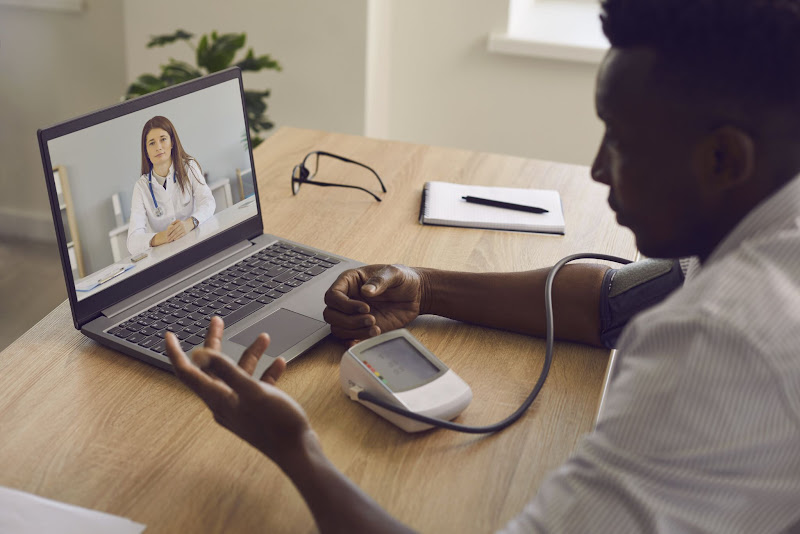Home health care, a rapidly growing sector of the healthcare industry, is embracing technological advancements at an unprecedented pace. From remote patient monitoring and telehealth to wearable devices and AI-powered analytics, technology is reshaping how home health care is delivered. This revolution is positively impacting patient outcomes, streamlining care processes, and enhancing the overall patient experience.
Telehealth: Breaking Down Barriers

Telehealth, also known as telemedicine, has emerged as a game-changer in home health care. It enables patients to connect with healthcare professionals remotely, using video conferencing, phone calls, or secure messaging. Telehealth offers several benefits, including:
- Increased Accessibility: Provides convenient care access for patients in rural areas or those with limited mobility.
- Enhanced Chronic Disease Management: Telehealth platforms enable frequent check-ins and consultations for patients with chronic conditions like diabetes or heart failure.
- Reduced Hospital Readmissions: Telehealth facilitates follow-up care and monitoring, helping prevent complications and unnecessary hospital visits.
Remote Patient Monitoring: Real-Time Data for Informed Decisions

Remote patient monitoring (RPM) devices allow healthcare providers to collect vital signs and other health data remotely. RPM devices include:
- Blood Pressure Monitors: Track and manage hypertension.
- Glucose Meters: Essential for diabetes management.
- Wearable Biosensors Track heart rate, oxygen saturation, sleep patterns, and more.
RPM provides healthcare professionals with real-time data on a patient’s health status, enabling timely interventions and preventing potential complications. This technology reduces unnecessary in-person visits, promoting proactive care and improved patient outcomes.
Wearable Technology: Empowering Patients
Wearable health technology, like smartwatches and fitness trackers, is empowering patients to take a proactive role in their healthcare. These devices can track various health metrics, providing insights into their well-being and encouraging them to manage their health better. Wearables offer features such as:
- Activity Tracking: Monitors steps, exercise intensity, and calories burned.
- Heart Rate Monitoring: Helps detect potential abnormalities.
- Sleep Tracking: Provides insights into sleep patterns and quality.
- Medication Reminders: Ensures adherence to medication schedules.
Artificial Intelligence (AI) and Machine Learning: Driving Personalized Care
AI and machine learning are revolutionizing healthcare, including home health care. These technologies have the potential to:
- Analyze Large Data Sets: AI can process massive amounts of patient data to identify patterns, predict potential risks, and develop personalized treatment plans.
- Streamline Workflows: AI-powered tools can automate administrative tasks, freeing up healthcare professionals to focus on patient care.
- Enhance Diagnostic Accuracy: AI algorithms can assist in image analysis and disease diagnosis.
Making the Most of Technology in Home Health Care
While technology offers tremendous benefits for home health care, successful implementation requires careful consideration:
- Addressing Patient Comfort: It’s essential to ease patients, especially the elderly, into the adoption of new technology. Offer training and support.
- Ensuring Data Security: Robust cybersecurity protocols are crucial to protecting sensitive patient health information.
- Prioritizing Human Touch: Technology should supplement, not replace, the valuable human connection within the patient-provider relationship.
Embracing the Future of Home Health Care
Technology is transforming home health care, offering convenience, accessibility, and improved patient outcomes. By embracing these advancements, home health agencies can create a more efficient and patient-centered care delivery system.
Ready to explore how technology can optimize your home health care services?
Book a consultation with us today. To book an appointment, please visit our website: https://www.the-hccf.com/





